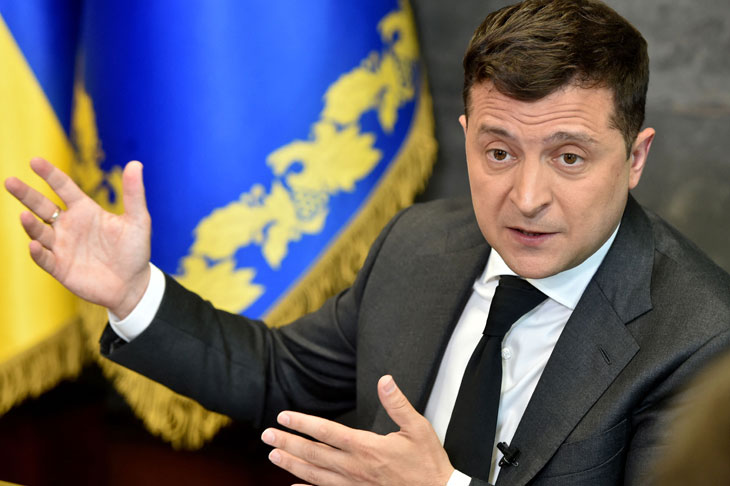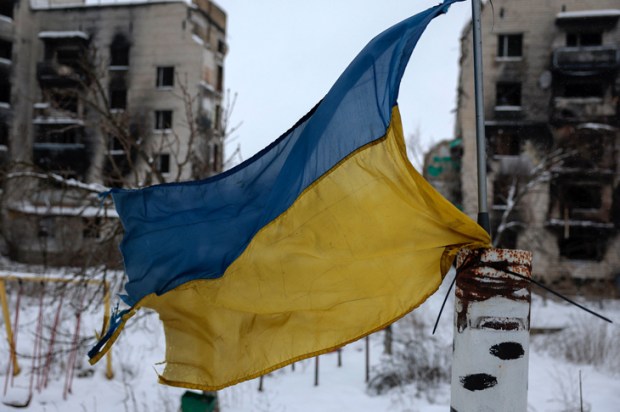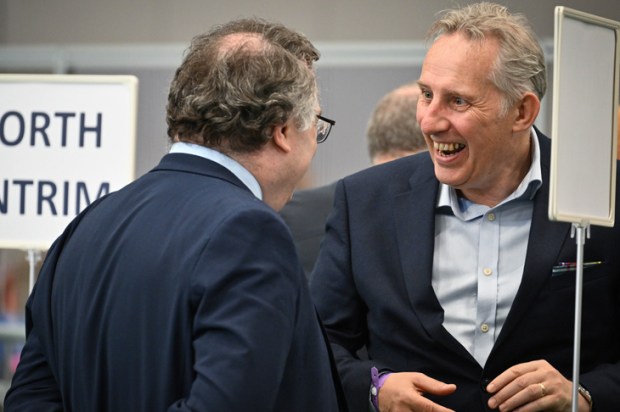While a UN official, I developed the concept of ‘a balance of interests’ as an alternative to ‘the national interest’ for assessing competing policy options for the UN. In some circumstances the UN can be an independent actor with its own institutional interests, organising principles and values. Even for countries, rather than a monolithic ‘national’ actor, there are several actors with competing perspectives, opinions and preferences. Nor is there a single ‘interest’ but several interests. Nor, consequently, can we say ‘the’. ‘A balance of interests’ is a more accurate empirical descriptor and superior analytical construct. Appeals to ‘the national interest’ by itself cannot determine the combination of – or the balance among – a state’s interests and values on any issue. It’s blindingly obvious currently to all but the ideologically blind, for example, that much of the Western world is paying the price of ignoring the need to find the optimal balance – the sweet spot – between the imperatives of affordable, reliable and clean energy. Absurdly, competing policy prescriptions – such as US isolationism and pacifism vs interventionism and war – are justified in the name of the same national interest. Should the US national interest override international law or is establishing and defending the rule of international law itself an important US national interest?
Among the most frequently debated needs for balance in international policy circles is that between justice and peace. In atrocity-riven violent conflicts, indicting the brutish thugs in power or rebel commanders can jeopardise the prospects of peace and prolong the conflict. But ignoring their mass murders is an affront to justice and often ensures that any peace agreement is fragile and prone to collapse. The UN Security Council’s primary mandate is peace. That of the World Court and the International Criminal Court is justice. Peace is forward-looking, problem-solving and integrative, requiring reconciliation between past enemies in an inclusive post-conflict community. The purely juridical approach to criminal justice can trap communities in the prism of past hatreds. Determining the fate of the leaders of defeated factions is primarily a political, not a judicial, question. Criminal law cannot replace social policy and a criminal trial is not always the best instrument for communal healing. Yet in some cases, criminal justice is a prerequisite for peace and reconciliation after mass crimes in fractured societies. Criminal trials establish individual responsibility for the crimes and negate the notion of collective guilt that can otherwise impede intercommunal reconciliation.
The advantages of ‘a balance of interests’ are especially relevant to the Ukraine war. Russia and Ukraine cannot change their geography and must learn to live in peaceful coexistence. There is no question but that Russia committed an act of aggression in violation of international law and there are credible allegations of atrocities committed by Russian troops but also by Ukrainian militias in the 2014–22 years. If the instinct to justice, which is hardwired into humans, is not appeased, individuals and groups will continue to engage in acts of vengeance and that will undermine peace. Yet justice that requires trial and punishment of the perpetrators of crimes committed is backward-looking finger-pointing and retributive and can be an impediment to the search for negotiated peace that requires compromises when the conflict has matured into a mutually hurting stalemate. Much of the mainstrean media have overstated Ukraine’s prowess and capabilities and exaggerated Russia’s shortcomings, thereby undercutting public support for a negotiated compromise. The US has a long history of badly miscalculating the willingness of those it is fighting to endure severe hardships because their stakes and core interests are bigger than that of the transient and fickle Americans. This was best expressed by the Taliban: ‘The Americans have the watches, we have the time’. Certainly there is zero evidence so far that Putin’s resolve to win the war on his terms has weakened in the slightest. Meanwhile China has doubled down on its support for Russia.
Trans-Atlantic tensions are another potential cost of a commitment to arm Ukraine until Russia is defeated and agrees to hand back all of pre-2014 Ukraine. To analysts like Donald Forbes, a visible divergence is developing already between Americans and Europeans on the best Western policy towards the war. To others like Ivan Krastev and Mark Leonard, the peace vs justice choice has the potential to split Europeans from the US. In a ten-country poll for the European Council on Foreign Relations, while 25 per cent of Europeans prioritised punishing Russia, 35 per cent want the war to end as soon as possible because they are worried about the economic costs and the risks of escalation. The ‘peace’ camp is bigger than the justice camp in nine of the ten countries, the exception being Poland. There’s a large constituency in the non-Western world deeply distrustful of the decades-long history of US exceptionalism, military adventurism and cultural imperialism that presently takes the form of woke imperialism on racial and gender identity. Consistent with my earlier warnings of the self-harm from sanctions policies (21 May), Ross Clark cautions that the Western boycott of Russian oil may already be backfiring as the world economy reels from food and energy supply shocks caused by the ill-conceived sanctions. Another important lesson from the history of earlier US interventions is that military arms given to ‘our bastards’ today can end up tomorrow in the hands of terrorists and extremists with a profoundly anti-Western agenda, intensifying violence and instability. While neo-Nazis may not dominate in the Ukrainian government as Russia alleges, it’s wrong to airbrush the presence of far right elements that are the beneficiaries of US military munificence even while the administration battles the far right domestically.
A return to the status quo ante of 24 February would require Russia to hand back this year’s territorial gains in return for Ukraine renouncing aspirations to join Nato and giving greater autonomy to the Russian-speaking Donbas regions. Negotiating an end to a vicious war is not a strategy of appeasement, when the alternative is an ongoing destruction of Ukraine in order to save it. Rather, it’s a necessary and sensible recognition of ground realities. Moreover, the sooner this is done, the better for all concerned. Conversely, the longer the war rages, the greater the destruction of Ukraine as a functioning society, economy and country; the greater the disruptions to European and world economies; and the higher the risks of escalation to a full-blown and even nuclear war between Russia and Nato.
Problem is, having climbed so high up his moral high horse in denouncing Putin as evil incarnate who must not stay in power, can Biden make his way down safely without falling off as he did from his bike recently?
Got something to add? Join the discussion and comment below.
Get 10 issues for just $10
Subscribe to The Spectator Australia today for the next 10 magazine issues, plus full online access, for just $10.
You might disagree with half of it, but you’ll enjoy reading all of it. Try your first month for free, then just $2 a week for the remainder of your first year.














Comments
Don't miss out
Join the conversation with other Spectator Australia readers. Subscribe to leave a comment.
SUBSCRIBEAlready a subscriber? Log in